Hannah Claus utilizes material and sensorial relationships within her studio practice to express Kanien’kehá:ka ways of knowing and understanding. Recipient of the Eiteljorg Fellowship (2019) and the Prix Giverny (2020), recent group exhibitions include Contextile: Biennial of Contemporary Textile Art (Guimarães, Portugual), Outside the Box (Iroquois Museum, Howes Cave NY) and the North American touring exhibition, Radical Stitch. Her solo exhibition, tsi iotnekahtentiónhatie [where the waters flow] will be exhibited at the Canada House Gallery in London, England in October 2025. Her artwork belongs to various public collections, including the National Gallery of Canada, the Montreal Museum of Fine Arts, the Winnipeg Art Gallery, among others. Claus served as a board member of the Indigenous Curatorial Collective (2013-2018), the Conseil des arts de Montréal (2017-2023) and is a co-founder Quebec’s first Indigenous-led artist-run centre, daphne (2019-ongoing). She holds a Concordia University Research Chair in Onkwehonwené:ha (New Scholar), and is Co-director of the Indigenous Futures Research Centre. Claus is a member of Kenhtè:ke | Tyendinaga Mohawks of the Bay of Quinte.
Indigenous Directions Leadership Council
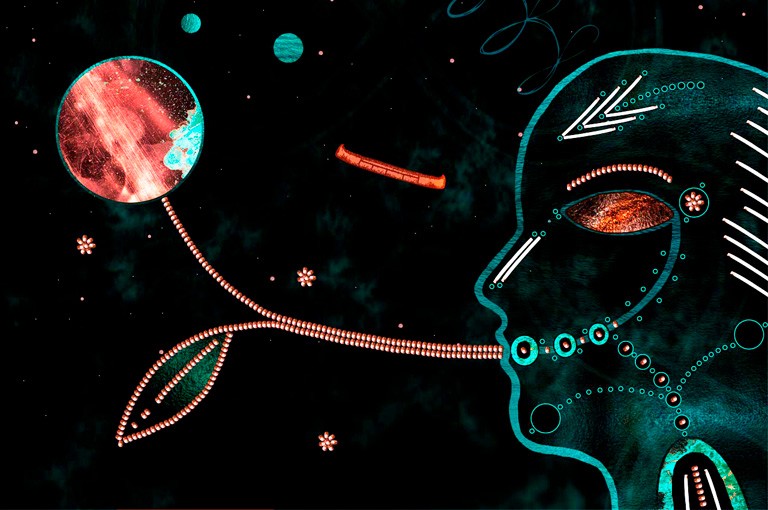
Mandate of the Indigenous Directions Leadership Council
The Indigenous Directions Leadership Council (IDLC) is a governing council whose mandate is to drive institutional change through the decolonization and indigenization of Concordia University. The IDLC provides leadership to the University, and undertakes this work for the benefit of past, present, and future students, faculty and staff, to prepare the ground for ongoing and increasing efforts to recalibrate the University’s internal and external relationships with Indigenous peoples.
The IDLC oversees and guides the implementation of the Indigenous Directions Action Plan in partnership with the Concordia University community. The Action Plan is a living document and guide that is intended to enable Concordia to move towards being a more responsive, respectful, and reciprocal post-secondary institution for and with Indigenous peoples, locally, nationally, and internationally. The IDLC also provides advice and makes recommendations to the Office of the Provost and Vice-President, Academic Affairs, senior management and other University stakeholders on matters related to the decolonization and indigenization of the University.
Members
The IDLC's membership includes Concordia staff, faculty and students. Get to know our members below.
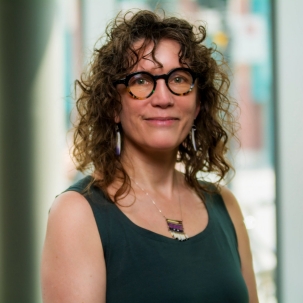
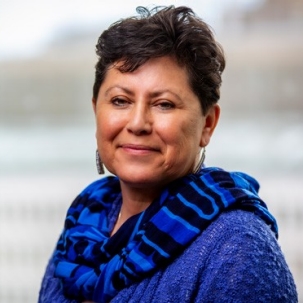
Director, Decolonizing Curriculum and Pedagogy, Ed.D.
Donna Kahérakwas Goodleaf is a citizen of the Kanien’kehá:ka Nation, Turtle Clan, from the community of Kahnawake.
Some of Dr. Goodleaf’s previously held roles include Executive Director of the Kanien’kehá:ka Onkwawén:na Raotitióhkwa Language and Cultural Center, and part-time faculty member in First Peoples Studies.
She brings her rich knowledge, cultural teachings, and educational expertise to her position as Concordia’s Director of Indigenous Curriculum and Pedagogy. Based out of the Centre for Teaching and Learning, Dr. Goodleaf plans on working with faculty members to rewrite their curricula to help ensure that Indigenous students can see themselves and their stories reflected in their studies.
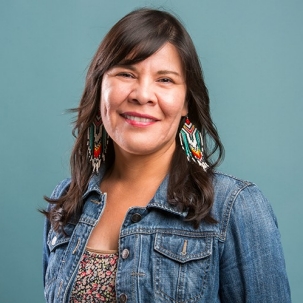
Cheyenne is an Anishinaabe from Roseau River First Nations, Treaty 1 territory, who grew up in Winnipeg, Manitoba. Cheyenne is the Manger of the Otsenhákta Student Centre. Cheyenne has been working in post secondary for over a decade, primarily in academic advising and student support roles. She worked as an academic advisor at Dalhousie University in Halifax, Nova Scotia and the University of Winnipeg, where she also advised and coordinated support services for students at an off-campus location in Winnipeg’s North End. Cheyenne understands the importance of creating safe, culturally relevant spaces are for Indigenous students pursing post secondary, where students can be supported in reconciling their learning and find meaning in their educational paths. Cheyenne is very passionate about art, education, Indigenous ways of knowing and doing, and community building.
Cheyenne is a mother to two adult daughters, who she raised as a single parent while pursing her university education and career. She is also a multi disciplinary artist who is always seeking opportunities for artistic expression and practice that cross boundaries between art, culture, education, politics and community.
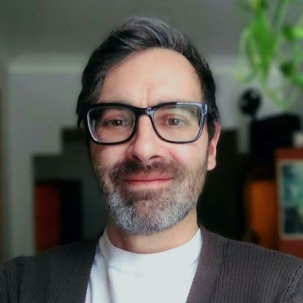
Nicolas Renaud is an Assistant Professor and Program Director of First Peoples Studies in the School of Community and Public Affairs at Concordia. He is also a filmmaker and visual artist, making documentaries, experimental films, and installations since the late 1990s. He is of mixed Québécois and Indigenous heritage and is a member of the Huron-Wendat First Nation of Wendake.
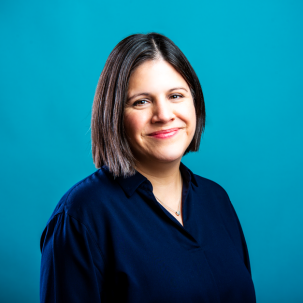
Kristy Snell is an award-winning multi-platform journalist and associate professor at Concordia, where her work focuses on decolonizing journalism/practice, experiential pedagogy, and Indigenous education.
As Academic Leader of the Institute for Inclusive, Investigative, and Innovative Journalism (I3J), Kristy has developed a long-term collaborative relationship between Concordia’s Department of Journalism and Kahnawà:ke Survival School, which introduces journalism to Kanien'kehà:ka high school students while educating Concordia students on culturally responsible journalism practices with Indigenous communities.
Before coming to Concordia, Kristy spent 14 years as CBC Radio morning news anchor/editor for Montreal/Quebec. She has filled-in as a news anchor for The World This Hour and has anchored CBC television newscasts in four provinces and nationally on CBC News Network. She also spent five years with CTV as an anchor and reporter.
Kristy holds a Master of Education (MEd) specializing in Indigenous education from the University of British Columbia.
She is a member of Standing Buffalo Dakota Nation in Saskatchewan.
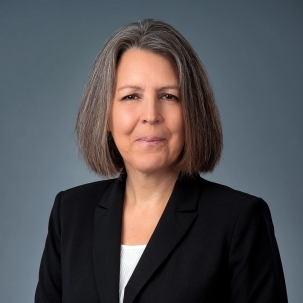
Senior Director of Indigenous Directions
Manon Tremblay is a nêhiyaw-iskwêw (Plains Cree) from the Muskeg Lake Cree Nation.
She stepped into her role as Senior Director, Indigenous Directions in December 2019. Prior to joining the Office of the Provost, Manon was the Director, Indigenous Research at the Social Sciences and Humanities Research Council of Canada (SSHRC) where she led the initiative to build Indigenous research capacity.
She also held the position of Senior Project Leader for the Public Service Commission of Canada’s Aboriginal Centre of Expertise where she worked in strategic Indigenous recruitment programs and Indigenous talent management.
Manon has spent 18 years of her career as a university student services administrator, part-time faculty and senior advisor on Indigenous affairs, first at Concordia University and then at the University of Ottawa. Manon is a recipient of the 2016 Public Service Award of Excellence.
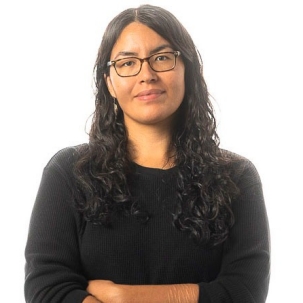
Sigwan Anishinaabekwe (Algonquin) from Long Point First Nation in Winneway, QC. Sigwan is linguist by training, and her research and work focus on both theoretical linguistics and language reclamation, and the ways in which linguistic theory and community-based research creation can inform each other.
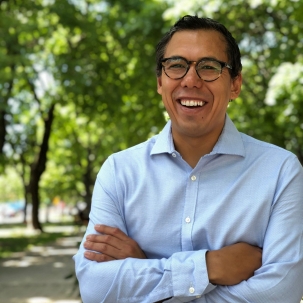
Allan Vicaire is Mi’kmaw from the community of Listuguj within Quebec.
In his role as senior advisor, he provides strategic advice, project management and operational activities for the Office for Indigenous Directions.
Prior to joining the Office of the Provost, Allan worked at McGill University for 9 years serving as the Director of the First Peoples’ House where he was responsible for the management of the student resource centre and provided strategic input throughout the university to ensure Indigenous student success. He also worked as the Indigenous Equity Advisor where he was responsible for designing educational programming such as the Indigenous Awareness Week and developing training in order to educate the McGill community about Indigenous peoples in Canada.
Allan is also a Concordia alumnus, having graduated in 2009 with a BA in Political Science.
Notices from IDLC
-
June 8, 2024
-
October 24, 2023
-
September 8, 2023
-
June 16, 2021
-
April 15, 2021
-
February 5, 2021

